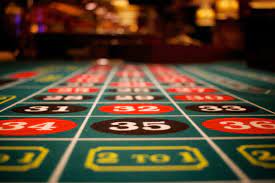Exploring the Moral Spectrum: Is Gambling a Sin
The question of whether gambling is a sin is a complex and nuanced topic that has been debated across cultures, religions, and societies for centuries. The moral implications of gambling have sparked philosophical, ethical, and theological discussions, each offering unique perspectives on the matter. In this article, we delve into the various viewpoints surrounding gambling and its potential classification as a sin.
Defining Gambling and Its Varied Forms
Gambling refers to the act of betting or wagering money or valuables on an uncertain outcome with the hope of winning a larger prize. It encompasses various forms, including casino games, lotteries, sports betting, poker, and more. The moral evaluation of gambling often hinges on factors such as intention, consequences, personal values, and cultural norms.
The Religious Perspective: Different Stances

1. Christianity: Within Christianity, attitudes toward gambling vary among denominations and individual believers. Some interpret passages from the Bible, such as “For the love of money is the root of all evil” (1 Timothy 6:10), as cautionary against the greed and materialism often associated with gambling. Others argue that responsible gambling for entertainment can be permissible, while excessive gambling or addiction is discouraged.
2. Islam: In Islam, gambling is generally considered haram (forbidden) due to its association with uncertainty, risk, and the potential to lead individuals away from productive pursuits. The Qur’an cautions against activities that involve chance and uncertainty, as they are seen as contradictory to the principles of disciplined living.
3. Judaism: Traditional Jewish teachings emphasize principles of ethics, charity, and responsible stewardship. While some forms of gambling may be discouraged, others may be accepted if they align with these principles. Modern perspectives within Judaism also consider the intentions and potential consequences of gambling.

4. Other Religions: Other world religions, such as Hinduism and Buddhism, have diverse views on gambling. In some cases, the emphasis is on avoiding greed and addiction, while in others, the focus is on promoting responsible behavior and avoiding harm to oneself and others.
Ethical Considerations: Balancing Intentions and Consequences
- Personal Intentions: One argument against labeling all gambling as sinful is that individual intentions matter. If someone engages in gambling as a form of entertainment, without becoming consumed by greed or neglecting their responsibilities, it may not necessarily be considered morally wrong.
- Harmful Consequences: Critics of gambling often highlight its potential for harm, including addiction, financial ruin, family breakdowns, and social ills. From this perspective, the consequences of gambling can outweigh any potential benefits.
- Economic and Societal Impact: Another angle to consider is the economic and societal impact of gambling. Some argue that gambling revenue can contribute to public services, while others contend that the negative consequences can outweigh the financial gains.
Navigating Personal Values and Cultural Norms

1. Personal Values: Individuals’ views on gambling are often shaped by their personal values, beliefs, and experiences. Those who place a strong emphasis on responsible behavior, stewardship, and moderation may choose to abstain from gambling.
2. Cultural Norms: Cultural norms also play a role in shaping attitudes toward gambling. In some societies, gambling is deeply ingrained in tradition and may be viewed differently than in cultures where it’s considered taboo.
A Complex Moral Landscape
The question of whether gambling is a sin is not easily answered with a simple “yes” or “no.” It’s a complex matter that requires consideration of religious teachings, ethical principles, cultural contexts, and individual intentions. While some religious traditions may categorically label gambling as sinful, others emphasize moderation, responsible behavior, and a balanced approach to life’s pleasures. Ultimately, the evaluation of gambling’s moral standing lies in the hands of individuals, shaped by their values, beliefs, and ethical compass.